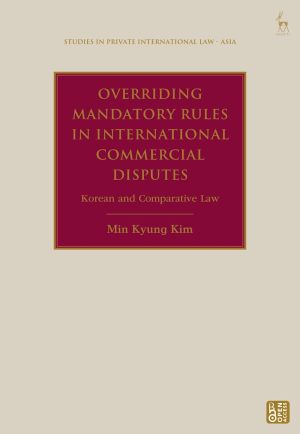
This open access book analyses how to identify and treat overriding mandatory rules in international commercial litigation and arbitration from a Korean and comparative law perspective. In addition to providing a deeper understanding of the concept of overriding mandatory rules and setting out standards and factors to identify such rules, the book provides a solution to the problems that third-country mandatory provisions pose in international commercial disputes.
The chapters examine the jurisprudence of the European Court of Justice under the Rome Convention and the Rome I Regulation, Swiss IPRG, and German and English law to help interpret and propose an amendment to the Korean Act on Private International Law. The book also establishes tests to identify the overriding mandatory character and then empirically applies them to assess various provisions in 10 different Acts in Korea. Furthermore, the book provides a 'balancing interest test' for third-country mandatory rules and suggests a new provision that harmonises the conflicting interests of the parties, the forum country, the third country, and at a multi-lateral level. It also explores the arbitrability of disputes in relation to overriding mandatory rules, the validity of an arbitration agreement, the extent to which overriding mandatory rules should apply, and whether the national courts can refuse enforcement of or revoke arbitral awards which did not apply/consider overriding mandatory rules.
This book is an invaluable resource to legal practitioners, judges, arbitrators in international commercial dispute resolution, researchers in private international law, and parties to international commercial contracts. Winner of the 16th Simdang Academic Prize 2023. Min Kyung Kim is the second-youngest recipient of the prestigious award and it is the first time that the prize has been awarded to a PhD thesis. The ebook editions of this book are available open access under a CC BY-NC-ND 4.0 licence on bloomsburycollections.com